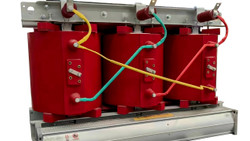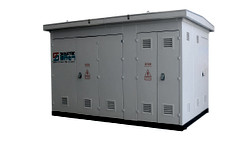As we near Labour Day 2024, it's a great time to take stock of where the energy sector is heading, influenced by new technologies and changing priorities. Artificial intelligence (AI) is notably changing the game, enhancing how energy systems work and affecting the kinds of jobs available. This article looks at how AI is making operations more efficient and changing the nature of work in the energy industry.
Integration of AI in Energy Operations
AI encompasses computer systems of executing tasks typically performed by humans like recognition, speech understanding and decision-making. Within the energy sector AI has been implemented across aspects. For instance, in fossil fuel extraction AI analyses data to guide drilling activities. In energy sectors, it predicts electricity demand to support wind farm operations. In transmission and distribution areas, AI identifies equipment issues and anticipates outages.
The advantages are extensive. AI designed to increase productivity, reduce expenses and boost safety surpasses methods. Additionally, it can process more data, than human capacity allows.
Shifting towards an AI managed grid offers the potential, for increased use of energy sources costs for consumers and a decrease in carbon emissions. The market for AI applications within the energy sector is expected to see substantial growth, rising from $2 billion in 2019 to an estimated $15 billion by 2030.
Transforming Roles in the Energy Industry
While AI presents opportunities, concerns linger regarding its impact on jobs within the energy sector. The fear of automation is valid, as AI advancements could render existing roles and skills obsolete. Jobs such as utility meter readers, plant operators, field technicians and data analysts may face displacement due to the rise of self-managing grid systems.
Nevertheless, experts believe that AI will also generate job opportunities that require skills like overseeing AI systems and maintenance. Of job losses, there will likely be a shift towards roles that involve collaborating with AI technologies alongside human teams. As algorithms handle tasks, employees may transition into more analytical and critical thinking positions. Professions like AI engineers, data scientists, cybersecurity specialists, sustainability experts and customer experience managers are anticipated to see increased demand.
However, adapting to these changes will necessitate retraining employees. Attracting new talent. Some older utility workers nearing retirement may not require reskilling efforts. On the hand, mid-career professionals might need education to stay competitive in their fields. Younger individuals entering the workforce are better equipped due to the prevalence of technology focused courses, in education.
In any case, it's important for the energy sector to make investments in enhancing the AI knowledge and skills of its workforce.
Emerging Roles in Human AI Collaboration
Employees are facing responsibilities in collaborating with AI. With automation taking care of tasks, those who excel will be those who bring a touch to their work. Qualities like creativity effective communication become increasingly vital when working alongside AI.
Energy professionals will need to adapt to roles rather than being directly involved in hands on tasks. For instance, grid operators used to controlling equipment directly will now oversee AI systems monitor performance metrics and address any issues that arise. Power traders will verify suggested transactions of executing trades themselves. Field technicians will supervise maintenance robots. Step in when needed for situations. It's crucial for professionals to learn how to work with their automated counterparts.
Concerns Regarding AI Reliability and Security
While making use of the potential of AI amidst evolving job roles requires algorithms, there are risks associated with relying on imperfect systems. AI could perpetuate biases. Make suboptimal decisions if trained on low quality data. Mistakes could lead to safety hazards, equipment breakdowns or disruptions in the power grid.
There are also worries, about cyber threats; hackers might compromise AI systems to trigger outages. As stewards of infrastructure energy companies must prioritize reliability and fortify defences against vulnerabilities.
Ongoing evaluations of AI systems practice scenarios, backup plans and human supervision are crucial, for ensuring accuracy.
Key Components for a Smooth Transition
Successfully navigating the shift to AI involves creating thought out policies that assist displaced workers promote job opportunities and regulate AI responsibly. Measures such as income protection, career guidance and severance packages can support individuals affected by automation. Offering tax credits for AI training initiatives. Forming partnerships with universities will help prepare the workforce of tomorrow. Upholding data ethics guidelines, ensuring transparency and implementing accountability measures will strengthen trust in AI technology. By implementing policies that distribute benefits fairly, the energy sector can leverage the potential of AI while safeguarding reliability and supporting its employees.
Takeaway
AI presents an opportunity to transform energy systems. It will also bring significant changes, to job roles and skill requirements. Managing this workforce transformation sustainably necessitates adapting policies, technologies and human resources strategies to maximize the benefits of AI while assisting energy professionals in taking on responsibilities. This approach enables the industry to lead advancements while adapting to shifts effectively.
Thank you for taking the time to read this exploration of artificial intelligence's role in the energy sector. We welcome your valuable thoughts and comments.
Until then, keep shining bright like a solar panel on a sunny day!





All comments are moderated before being published. Inappropriate or off-topic comments may not be approved.